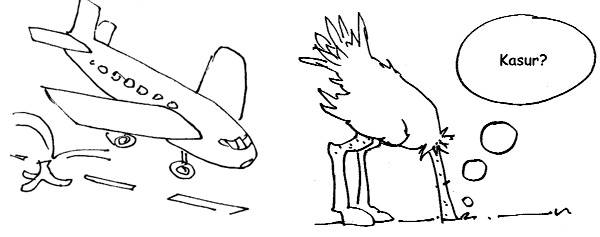
Soft targets
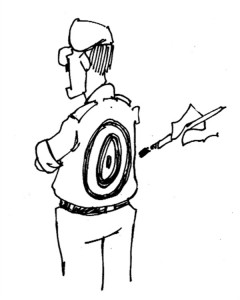
Sir,
Punjab Home Minister Col. (R) Shuja Khanzada was killed, along with dozens of others, in a suicide blast at his political office near Attock last week. After the attack, the Law Minister of Punjab, Rana Sanaullah, confirmed that the late minister had received threats from different groups and been reluctant to visit his hometown of Attock. Meanwhile, the Taliban-affiliated militant group, Lashkar-e-Islam, claimed responsibility for the attack on Col. (R) Shuja Khanzada.
If the Government of Punjab was aware of these threats to the Home Minister, why were no precautions taken to protect his life and those of the people who had gathered at his dera in Shadi Khan? The provincial government’s negligence has cost the country dearly, leaving our enemies with a range of “soft targets” from which to choose their next set of victims.
Khazir Klasra,
Islamabad.
Which language?
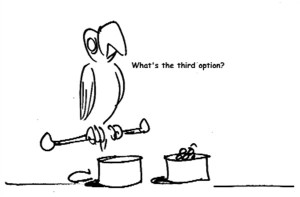
Sir,
Our national language is Urdu and despite the fact that it is spoken widely across the country, it often feels that English has replaced Urdu in terms of the importance it is accorded. More than 50 percent of Pakistanis cannot speak English – does this make them all inferior, uneducated or illiterate? When so many children have not had the good fortune to be born to an educated household or to attend a private English-medium school, they are left lacking confidence and are bullied or looked down on for their poor or nonexistent English. This follows them through to adulthood and becomes part of their personality.
Meanwhile, society continues to consider English more important than Urdu, given its status as a global language and the fact that most school subjects are taught in English (including mathematics, biology, chemistry, and physics) in the rest of the world. It is fine to learn a language that serves as a source of knowledge and is widely spoken around the globe, but in doing so, we should not forget our national culture and legacy. Urdu is an integral part of our identity and not something we should think of abandoning so easily.
Shahid Ahmed Qureshi,
Badin.
Kasur horrors I
Sir,
In the aftermath of one of the most shameful crimes in Pakistan’s history – where some 200 children were discovered to be victims of physical and sexual abuse – the country’s lawmakers remain silent. The entire nation has condemned this barbaric incident, but the ministry has simply said that such occurrences are “nothing new” and that the media has merely exaggerated the issue.
Lawmakers such as Rana Sanaullah have dismissed the incident, saying that it involved only five or six children. My response to this heartless attitude is, why should even those few children have been subjected to such trauma? What if one’s own child had been among those “few” five or six? Even after the entire case has emerged in front of the nation through constant media reports, the government has begun its usual blame game instead of hanging its head in shame and vowing to take action against those accused. We call Pakistan a “developing country”, but we are merely regressing into ignorance.
It is disheartening to see that, whenever a rape case in India is reported on a social network site, Pakistanis are apt to criticize Indian culture and undermine the gravity of the matter. We should be painfully aware that a serious case of child abuse has emerged in our own country. It is not something to be taken lightly and we, as human beings, should be ashamed of what we have become. In India, most reports highlight the abuse of girls, but in Pakistan, even young boys are not spared. Imagine how these young children must have had their self-respect and confidence shattered, leaving them unable to trust anybody. Imagine how they must have grown up consumed by guilt and in fear of being “exposed”, their family “honor” at stake.
Sadly, in Pakistan, this particular type of abuse is not reported to the police because it is perceived as a blot on the family’s reputation. The victims remain silent while their families remain ignorant of the trauma their loved ones are going through. Another important aspect is their health. Who knows what sort of physical damage these cases of abuse have resulted in? Many of these children are also likely to have contracted sexually transmitted diseases.
The time has come to recognize our rights, to stand up against cruelty and question every wrongdoing committed by policymakers and by the culprits of such horrors. We do not have to remain silent. We must rise together to ensure that the victims of Kasur get justice and that their abusers are punished. Hereon, such barbaric incidents must never be repeated – not in our country or anywhere else in the world. The children concerned must be provided immediate psychiatric counseling to help them recover from the trauma of abuse. They must also be examined by a team of doctors and treated for any damage or disease.
Seerat Shehzad,
Faisalabad.
Kasur horrors II
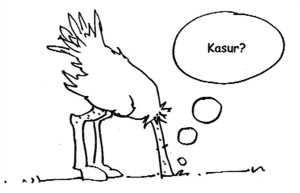
Sir,
An Al-Jazeera anchorperson, commenting on the recent scandal involving the sexual abuse of over 300 children in Kasur, asked Tahira Abdullah, a prominent social and human rights activist, that, if this was the tip of the iceberg, why was it covered up so long? Ms Abdullah pointedly blamed the state for having failed its children, given the dominant feudal structure that characterizes Pakistan’s parliament. She referred to different articles on child protection under the Constitution and to annual reports by NGOs that reveal the horrific extent of child and human rights abuses. And yet, these incidents are rarely brought to the public forum because of the associated “dishonor” or “stigma”, especially for women. Thus, to save face, the clan to which the victims belong, hush up the matter – even if their conscience remains guilty.
We do not lack for laws, but our legal system is compromised by the lack of application and the inaction of state organs. Let us not forget that the Constitution clearly guarantees fundamental principles and laws that exist to eliminate exploitation and protect human dignity.
Certain direct or indirect factors account for why people resort to illegal or immoral methods to obtain pleasure: the reasons can range from poverty, illiteracy and violence to unemployment, social frustration and the prevalence of a male-dominated society. Add to this the easy availability of cell phones, the Internet and television, all of which make pornography easily accessible. It is not the first time we have heard of such a horrendous incident. What about those cases in which victims do not share their trauma or the police collude with influential persons and refuse to register child molestation and rape cases?
Nonetheless, technology is not the main culprit here – it is the lack of implementation of laws and the connivance of the police at lower levels that aggravates the problem. Our laws may prohibit illegal activities in general, but we have no national child protection policy or management system in place to protect our children against sexual abuse. UNICEF has prepared such a policy and urged the government to implement it, but this has not happened. Child abusers have a particular mindset that can be broken when a clear policy is in place with practical steps, such as the establishment of a child protection authority at the national, district, tehsil and village levels.
Abdul Ali,
Gilgit.
Whither justice I
Sir,
Despite the fact that the Kasur child abuse scandal appears to have continued for years, no one dared utter a voice against the offenders, given their access to influential persons. The police were simply not interested in the matter in the initial stages and it became a burning issue only when the story broke the front pages of the national media.
The story depicts two major aspects of society’s general attitude. First, the public has no confidence in the authorities responsible for administering justice. People would prefer to surrender before such criminal elements and accept their demands than to be humiliated in a police station. Second, criminal gangs backed by powerful people have a strong deterrent effect both on ordinary people as well as law enforcing agencies. The Kasur scandal is one of many such stories. There are many other social evils that prevail but go unattended. It is time to purge society of this disease.
Muhammad Waqas Haral,
Chiniot.
Whither justice II
Sir,
When crimes as heinous as the sexual abuse of children occur in other countries – whether they involve ordinary citizens, politicians, the clergy, the media or even public office holders – both the state and society come down on those accused with an iron fist. In Pakistan, however, there is not one instance in which the state has exposed such crimes and used its full might to protect the poor and the weak – whether it be the murderers of Shahzeb or Hamza in Karachi, or Zain in Lahore, or the burying alive of young women in Balochistan (justified as honor killings). Unless the state, the ruling elite and the establishment agree to the supremacy of law and the constitutional rights of citizens, how can we prevent terrorists and religious fundamentalists from recruiting those driven to desperation by injustice?
The IG Police Punjab, while addressing a press conference in Kasur, stated that this was an Islamic society where such crimes bring shame and cannot be tolerated. Had this been an Islamic society, the state should have exposed the crime and summarily tried all members of the local administration and police, in whose presence such crimes were being committed.
Ali Malik,
Lahore.
Revival of PIA
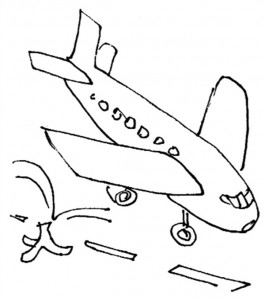
Sir,
PIA’s decision to enter into a code sharing agreement with Etihad is a step in the right direction, provided the airline takes immediate steps to eliminate travel agent cartels and opt for open, online sales and bookings, thus bypassing any intermediaries and passing the benefit of commissions saved directly onto the customer. This will prevent the large-scale theft of revenues and imposition of heavy fines, which PIA was forced to pay travel agents for one-sided agreements signed exclusively to benefit a select group of UK-based travel agents by corrupt members of the previous management. All such cartels operating in Europe, North America and Southeast Asia need to be eliminated.
New aircraft such as the B-777 have been grounded because of faulty deals in the procurement of technical spares. Instead of choosing from numerous aircraft manufacturer-recommended vendors located along the network, PIA chose a single vendor based in the UAE instead, thereby raising the cost of maintenance and leading to long delays and disrupted schedules. Merely inducting new aircraft into the fleet without eliminating the corrupt mafia involved in procurement, marketing, corporate planning, engineering, flight operations and finance results in good money being invested in projects that are then destined to fail.
Former PIA managing directors have become billionaires as a result of blatant levels of corruption and mismanagement. PIA needs to weed out all those appointed irregularly during 2008 to 2012, including those involved in financial and administrative irregularities and those who had submitted fake degrees and birth or domicile certificates. Unless this is done, we cannot hope to restore discipline to the organization, and the PRs 11 billion invested in PIA will go down the drain.
Rahat Siddiqi,
Dubai.
What independence means
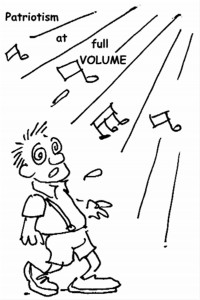
Sir,
The Movement for the Restoration of Democracy (MRD) launched a massive protest campaign in the early summer of 1983. That year, General Zia-ul-Haq’s military regime decided to celebrate Independence Day on 14 August in the grandest way possible, the aim being to divert public attention from the MRD’s agitation. The dictator may be dead, but official celebrations of 14 August continue in a similar vein, with private TV channels making money through publicity campaigns on this occasion.
In Pakistan, patriotism is officially promoted through nationalistic songs, poems, slogans, tall words and flag waving. What the state fails to see is that independence celebrations should be spontaneous and natural, emanating from the people – not just planned and executed by the state and the media. People appreciate their political independence best when they feel safe inside and outside their homes, when they have faith that the state will treat all citizens equally and with respect. When a state protects the rights and freedoms of its people, when it provides equal opportunities and creates conditions for uniform economic and social development, when it ensures justice and fairness for everyone… that is where citizens will happily fulfill their obligations and appreciate their independence as a sovereign country.
The state of Pakistan faces serious challenges, some of which include the following. First, the undemocratic and colonial nature of the state and governance system means that certain people and institutions remain above the law and have no respect for the Constitution or the rule of law. Second, the vast majority of Pakistanis lack a true sense of belonging to their country, given that the political elite treats ordinary people as “subjects”. Corruption has reached the lower levels of society, with many people looting state resources and damaging state property because they feel entirely alienated from the state itself.
Third, attempts to mix national identity and purpose, the state and religion, and the political use of Islam have merely encouraged hypocrisy and a tendency to hide key issues under the carpet. Consequently, both political leaders and the public are willing to shift responsibility and often seek religious justification for inappropriate, illegal or immoral acts. Fourth, the use of militancy as a policy tool has severely damaged the national interest in the long term. Fifth, there are still fundamental differences among stakeholders as to the direction the country should take and which form of political system best suits Pakistan. Finally, we have continued to deny Pakistan’s ethnic and cultural diversity, instead imposing centralist policies and institutions.
Unless we address the above, Pakistan will keep spiraling towards a highly uncertain future.
Shiraz Paracha,
Islamabad.

